Interviews by Elleke Boehmer

This conversation between Elleke Boehmer and Meg Samuelson began in a book-talk seminar hosted by... more This conversation between Elleke Boehmer and Meg Samuelson began in a book-talk seminar hosted by the Institute for Humanities in Africa at the University of Cape Town on 15 September 2015 and continued across subsequent months of travel and exchange between three countries, Britain, South Africa and Australia. The conversation tacks between two award-winning books by Boehmer, the cultural history Indian Arrivals, 1870-1915: Networks of British Empire (Oxford UP, 2015) and the novel The Shouting in the Dark (Jacana; Sandstone, 2015). Together Boehmer and Samuelson draw out the unexpected resonances discovered in a study of Indian arrivals in London from the opening of the Suez Canal to the first world war, and a novel set in South Africa after the second world war, and consider how writing and shipboard yarns weave these worlds together.
Available open access: http://sydneyreviewofbooks.com/writing-migrant-lives-in-the-south-indian-arrivals/
Papers by Elleke Boehmer
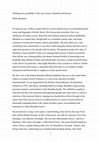
Journal of Southern African Studies, Nov 2, 2019
To map my way, I'd like to begin with two recent cultural texts or events featuring the name and ... more To map my way, I'd like to begin with two recent cultural texts or events featuring the name and biography of South Africa's first democratic president. One is an exhibition, the other a poem. Both after their fashion approach Nelson Rohihlahla Mandela as a symbol that, though built on a twentieth century base, also bears reference to twenty-first-century culture and politics. The texts allow me to ask something I have asked before, in my short 2008 biography Nelson Mandela, but to angle that question to the decades that lie ahead. 1 The question probes the value of Mandela's career and life's work as an ongoing object lesson or theory-in-practice. How did his way of doing politics, his almost charmed facility of interacting evenhandedly with political enemies and friends alike, lay down a model for South Africa in the future? In particular, what might Mandela's story continue to teach us, further into the twenty-first century-especially when that story is re-evaluated, freshly interpreted and historically re-angled, as in this special issue? My first 'text' is the Nelson Mandela Official Exhibition that ran at the Leake Street Gallery in London from 8 February to 2 June 2019, and then travelled internationally. It was supported by the Robben Island Museum, the Mayibuye Archives at UWC, and others, including Zelda La Grange, Mandela's long-serving personal assistant, and members of the Mandela family. The exhibition sought to represent the life of the statesman through photographs and video clips, as well as a selection of his treasured objects, ranging from handwritten letters through to his watch. But it also had an interest in calling visitors to a sense of moral action by insistently reminding them of the values of justice, peace, reconciliation and humanity for which Mandela stood. 2 My second text is '1994: a love poem', a hard-hitting, witty lyric by the Cape Town poet-activist Koleka Putuma. In the 21-line poem, she calls for someone to love her adoringly, even abjectly, fawningly, 'the way that white people look at / and love / Mandela'. 3 She wants, she quips, 'a TRC kind of lover'. The poem threads together a series of loose couplets linking white 'love' for Mandela to 'betrayal', 'fuckery' and living in the past, culminating in an intentionally shocking charge-that white
New directions in book history, 2017
Routledge eBooks, Mar 10, 2023
Oxford University Press eBooks, Jul 18, 2008
Manchester University Press eBooks, Jun 16, 2005
Oxford University Press eBooks, Jul 18, 2008
Oxford University Press eBooks, Sep 1, 2015
Liverpool University Press eBooks, Feb 15, 2013
Please help us populate SUNScholar with the post print version of this article. It can be e-maile... more Please help us populate SUNScholar with the post print version of this article. It can be e-mailed to: scholar@sun.ac.zaLettere En WysbegeerteEngel
... AJAyer IDEOLOGY Michael Freeden INDIAN PHILOSOPHY Sue Hamilton INTELLIGENCE IanJ.Deary INTERN... more ... AJAyer IDEOLOGY Michael Freeden INDIAN PHILOSOPHY Sue Hamilton INTELLIGENCE IanJ.Deary INTERNATIONAL MIGRATION Khalid Koser INTERNATIONAL ... The poem first appeared in Jacques Derrida and Mustafa Tlili (eds), For Nelson Mandela (Seaver Books, 1986 ...
Research in African Literatures, Sep 26, 2007
ABSTRACT

Motherlands, mothers and nationalist sons: theorising the engendered nation 2 'The master's dance... more Motherlands, mothers and nationalist sons: theorising the engendered nation 2 'The master's dance to the master's voice': revolutionary nationalism and women's representation in Ngugi wa Thiong'o 3 Of goddesses and stories: gender and a new politics in Achebe 4 The hero's story: the male leader's autobiography and the syntax of postcolonial nationalism 5 Stories of women and mothers: gender and nationalism in the early fiction of Flora Nwapa 6 Daughters of the house: the adolescent girl and the nation 7 Transfiguring: colonial body into postcolonial narrative 8 The nation as metaphor: Ben Okri, Chenjerai Hove, Dambudzo Marechera 9 East is east: where postcolonialism is neo-orientalist-the cases of Sarojini Naidu and Arundhati Roy 10 Tropes of yearning and dissent: the inflection of desire in Yvonne Vera and Tsitsi Dangarembga 11 Beside the west: postcolonial women writers in a transnational frame 12 Conclusion: defining the nation differently Select bibliography Index viii Contents I first wish to acknowledge with much gratitude the support of the A.H.R.B.
New York University Press eBooks, Dec 31, 2020
<p>Class, as well as culture, can characterize cosmopolitan solidarity, as Elleke Boehmer&#... more <p>Class, as well as culture, can characterize cosmopolitan solidarity, as Elleke Boehmer's discussion of the virtual cosmopolitanism experienced by colonial and postcolonial readerships in India suggests.</p>
Routledge eBooks, May 16, 2019
JM Coetzee has remarked that all autobiography is story-telling and also that all writing is a ki... more JM Coetzee has remarked that all autobiography is story-telling and also that all writing is a kind of autobiography. Exploring this link between (auto)biography, and fiction as 'writing', this essay will offer critical reflections on J.M. Coetzee's longstanding lifewriting or 'autre-fictional' project as it intersects with two recent biographical studies,
Manchester University Press eBooks, May 26, 2017
English Academy Review, Jan 2, 2021

Manchester University Press eBooks, Jul 6, 2021
In Herman Melville's huge and perennially remarkable novel Moby-Dick (1851), the fateful Pequod w... more In Herman Melville's huge and perennially remarkable novel Moby-Dick (1851), the fateful Pequod with Captain Ahab at the helm pursues his nemesis the eponymous white whale from the Atlantic through the Southern Ocean and the Indonesian archipelago into the South Seas. As it does so, its heterogeneous crew crosses paths with a number of other whalers, including the Goney (or the Albatross) and the Rachel. These are fortuitous crossings in those weltering immensities, yet each whaler is met with a sense of fateful inevitability and each encounter is heavy with inarticulate surmise and expectation. The crews as they pass one another have the impression that these vast southern immensities throw up north-south conjunctions. However, as profound is the feeling that the far extremities of the great oceans defy attempts to circumscribe and understand their immensity, especially those pitched from the north, represented here by Ahab. The narrator Ishmael's friend Queequeg, the tattooed Fijian, by contrast, is in his element for much of the Pequod's journey. Yet he too, idol-worshipping and superstitious, is typecast according to northern conventions. 1 As Worlding the South explores, southern hemisphere histories are threaded through with many tenuous and yet still tenacious human conjunctions like the Pequod's-conjunctions often realised in or crystallised through maps, books, letters, panoramas, and other kinds of inscription and installation. These verbal, textual, and cartographic networks the book's contributors study in abundant, fascinating detail. As against the monolithic constructs of empire and nation of much nineteenth-and twentieth-century colonial history, the editors Sarah Comyn and Porscha Fermanis offer this transnational, transactional, and latitudinal south-centred project-one that zigzags through and across the nineteenth-century British world, but without at any point reifying it as a construct. The book puts in place a critical exercise of worlding, or, more properly, re-worlding, which is conceived as a double movement both of showing how the south was made into a knowable global object and of unravelling the representational strategies and entangled histories that made the south conceivable in this way. This



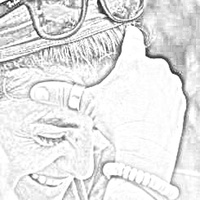
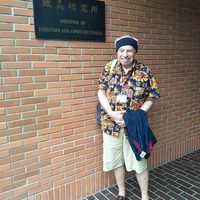
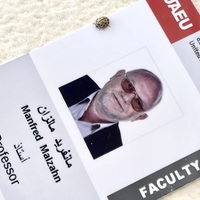
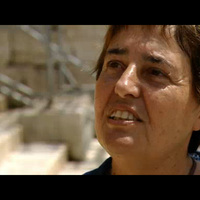




Uploads
Interviews by Elleke Boehmer
Available open access: http://sydneyreviewofbooks.com/writing-migrant-lives-in-the-south-indian-arrivals/
Papers by Elleke Boehmer
Available open access: http://sydneyreviewofbooks.com/writing-migrant-lives-in-the-south-indian-arrivals/